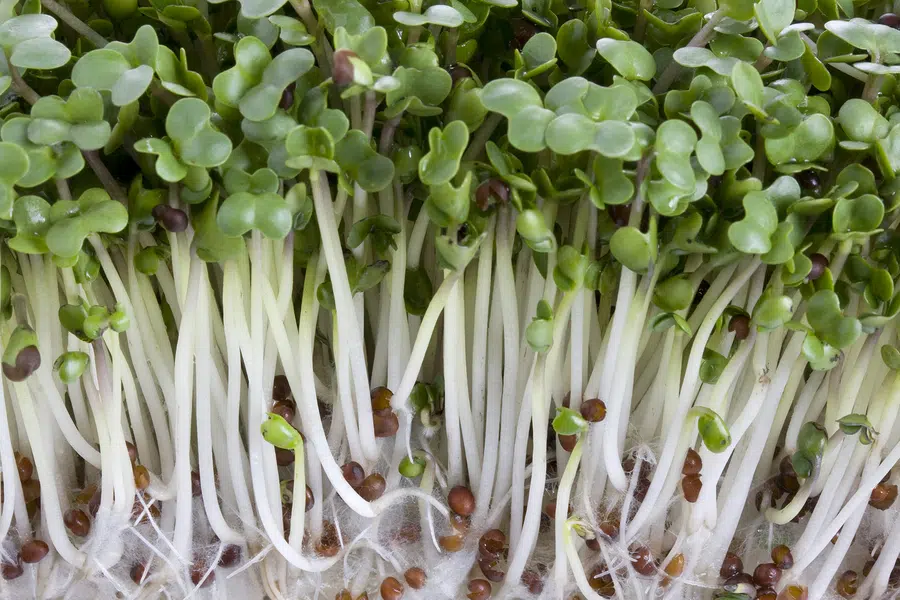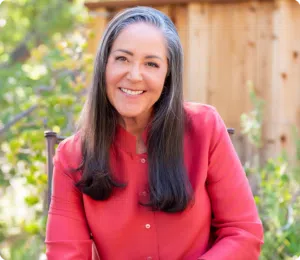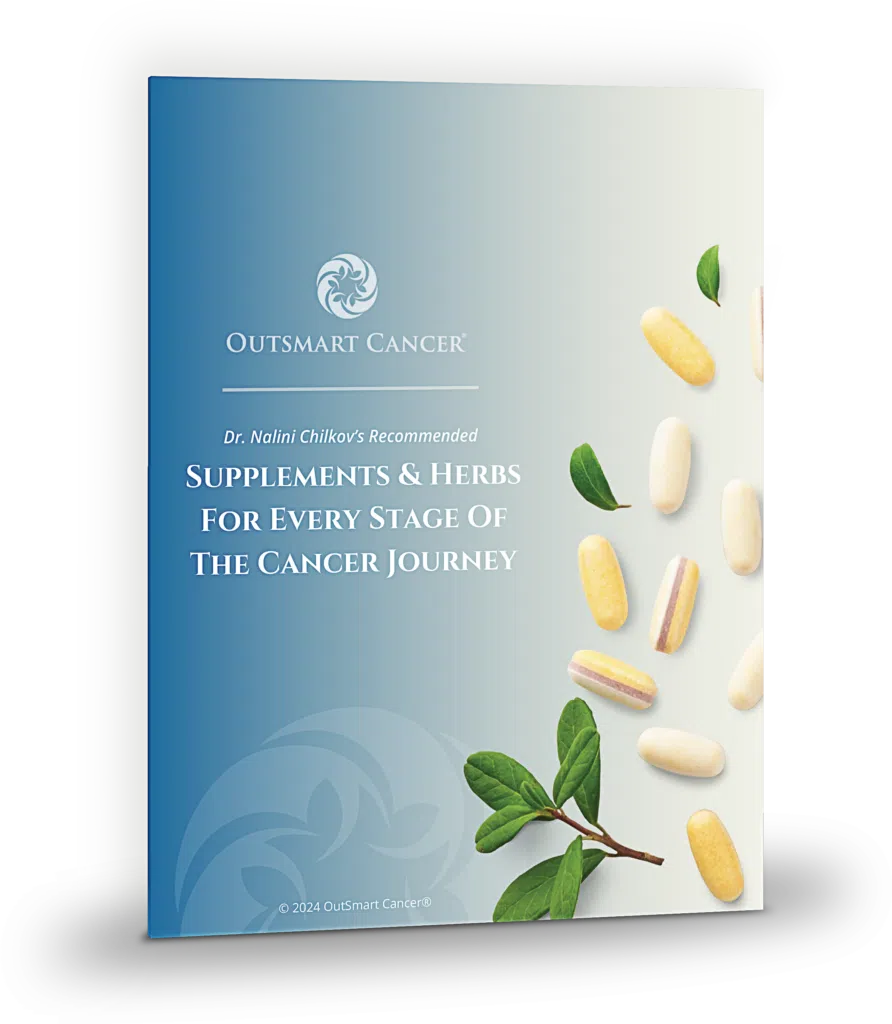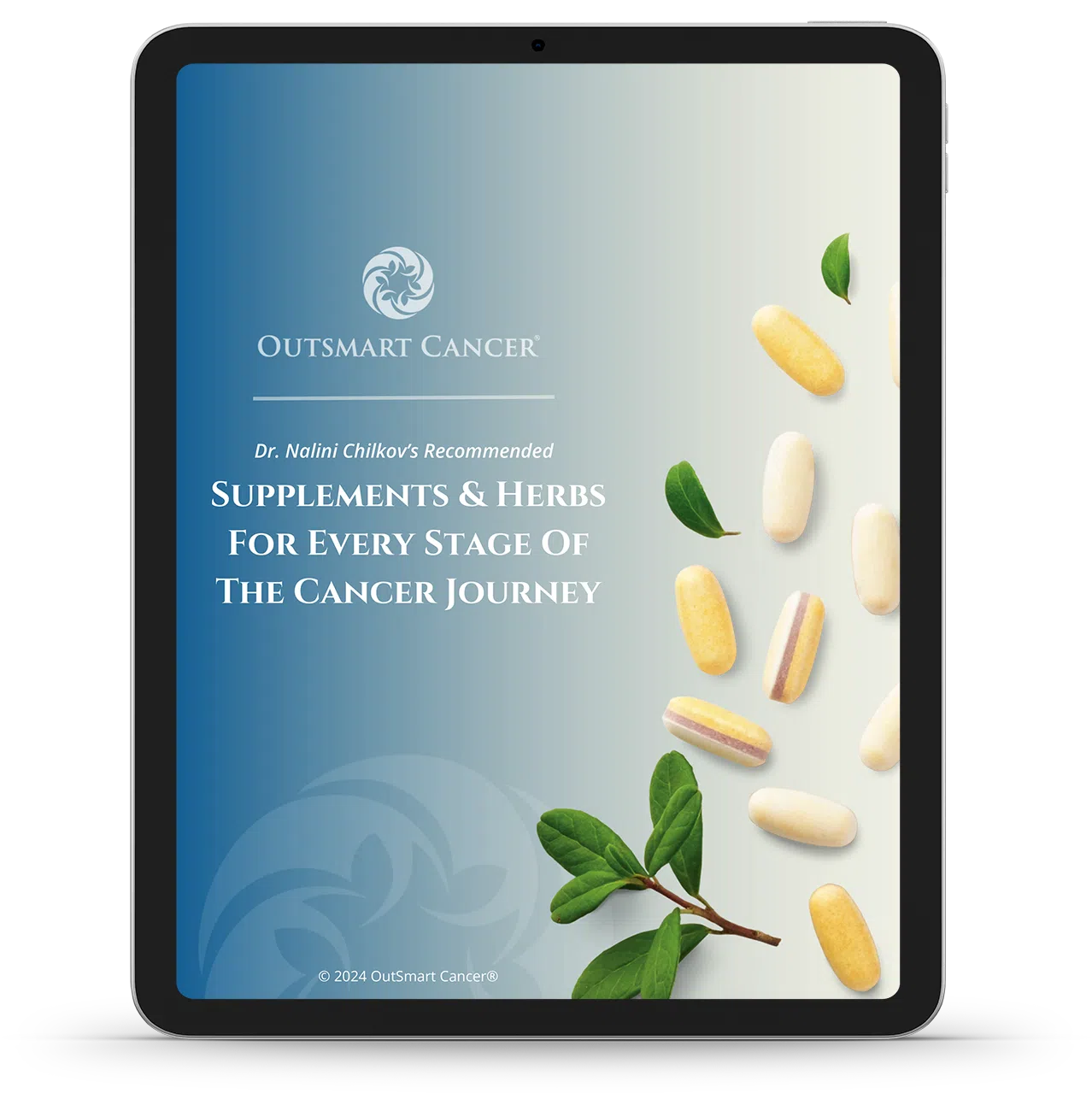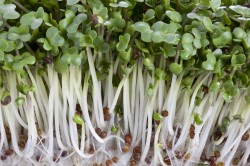 Broccoli sprouts are always in season.
Broccoli sprouts are always in season.
Studies Suggest Links to Breast Cancer Protection and Prevention
by Helayne Waldman, Ed.D., M.S.
Is it nature or nurture that determines our susceptibility to cancer? One of the most exciting concepts in modern nutrition, nutrigenomics, teaches us that it isn’t one or the other, but a combination of both. Nutrigenomics looks at how foods can trigger genetic changes for good or ill. Through the efforts of nutrigenomic scientists, there is growing evidence that good dietary choices can help prevent the onset of cancer and may even help cure it.
The food you eat; the water you drink; the air you breathe; all the chemicals you encounter in cosmetics, medicines, and cleaning products — everything that your body is subjected to on a day-to-day basis — affect the functioning of your bodily systems, your vital organs, and your very genes, providing stimuli that either can bring a particular genetic trait to full expression or subdue its impact.
Cruciferous (Cabbage Family) vegetables are one such group that provide potent anti-cancer properties through their effect on your genes. Broccoli, Brussels sprouts, cabbage, cauliflower, and kale are just a handful of the powerhouse vegetables belonging to the cruciferous family, a family that is known to positively affect the expression of over 200 genes.
Sulforaphane, a sulfur compound created by these vegetables, has caught the attention of researchers with its ability to suppress breast cancer cell activity, inhibit cancer cell motility, and enhance detoxification through methylation support. A new study published in the September 2013 Breast Cancer Research and Treatment journal suggests that sulforaphane blocks the inflammatory processes that allow breast cancer stem cells to communicate. By acting on the cancer stem cells, sulforaphane prevents tumors from forming, growing, and migrating — a boon if you’re looking to reduce your risk of breast cancer occurrence, move into remission, or prevent recurrence.
French researchers made a similar discovery years earlier when their research depicted the ability of sulforaphane to cause cancer cells to self-destruct, a process also known as apoptosis or programmed cell death. This multitasking facility of sulforaphane to both eliminate or detoxify carcinogens and to destroy cells with latent cancer-causing mutations again suggests that sulforaphane may have wide-ranging effects on developed cancer at various stages, as well as preventative ones.
The very best way to get the benefits to get the benefits of the anti-cancer compounds in cruciferous vegetables is to eat broccoli sprouts – lots of them- as they concentrate the suforaphane compounds that are unique to the crucifers. It’s easy to do. Here’s how:
- purchase broccoli seeds that are designed for sprouting. You can order them from reputable websites such as Mountain Rose Herbs (mountainroseherbs.com) or The Sprout People (sproutpeople.com).
- Get a mason jar with a sprouting lid. You can also use cheesecloth to cover the jar as long as it is securely fastened with a rubberband.
- Place one to two tablespoons of seeds in your jar, and cover with approximately two-four inches of water. Let it sit overnight.
- In the drain the water, using the sprouting lid or cheesecloth.
- Rinse the seeds by adding water to the jar, moving the seeds around, and draining.
- Leave on a countertop or windowsill.
- Repeat twice a day, every day until your sprouts are the ready. It usually takes from three to four days.
- Store your sprouts in a covered bowl or food storage bag with a paper towel inside to absorb excess moisture. Use the sprouts within a week.
Don’t have time to eat your broccoli and cauliflower or make broccoli sprouts (many health food and grocery stores now stock them!) You can get your sulphoraphane every day in a capsule!!
Take Broccoprotect, a professional quality, high grade, super concentrated high potency source of sulphoraphane.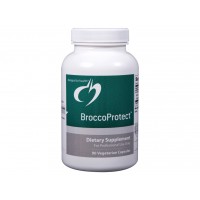
Recommended dose: 1 capsule 1-3x/day.
(If you are at risk for cancer or are a breast cancer survivor, consider taking a higher daily dose)
For more tips on cancer fighting foods, check out the book The Whole Food Guide for Breast Cancer Survivors, www.wholefoodguideforbreastcancer.com.
Helayne Waldman, Ed.D., M.S., CNE, is a holistic nutrition practitioner based in Oakland California. In addition to her private practice, she is an instructor at Hawthorn University and co-author of the Amazon bestselling book, The Whole Food Guide for Breast Cancer Survivors. You can also find her on Facebook at Whole Food Guide for Breast Cancer
